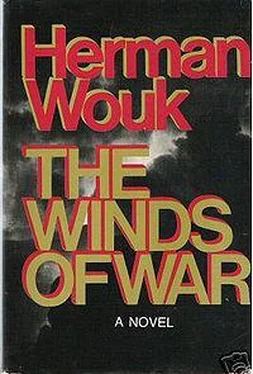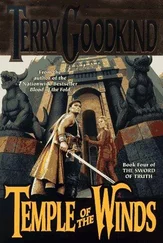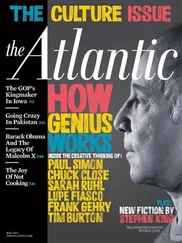Herman Wouk - The Winds of War
Здесь есть возможность читать онлайн «Herman Wouk - The Winds of War» весь текст электронной книги совершенно бесплатно (целиком полную версию без сокращений). В некоторых случаях можно слушать аудио, скачать через торрент в формате fb2 и присутствует краткое содержание. Год выпуска: 1971, Издательство: Collins, Жанр: Историческая проза, на английском языке. Описание произведения, (предисловие) а так же отзывы посетителей доступны на портале библиотеки ЛибКат.
- Название:The Winds of War
- Автор:
- Издательство:Collins
- Жанр:
- Год:1971
- ISBN:нет данных
- Рейтинг книги:4 / 5. Голосов: 1
-
Избранное:Добавить в избранное
- Отзывы:
-
Ваша оценка:
- 80
- 1
- 2
- 3
- 4
- 5
The Winds of War: краткое содержание, описание и аннотация
Предлагаем к чтению аннотацию, описание, краткое содержание или предисловие (зависит от того, что написал сам автор книги «The Winds of War»). Если вы не нашли необходимую информацию о книге — напишите в комментариях, мы постараемся отыскать её.
About the Author
Herman Wouk's acclaimed novels include the Pulitzer-Prize winning
;
;
;
;
;
; and
.
The Winds of War — читать онлайн бесплатно полную книгу (весь текст) целиком
Ниже представлен текст книги, разбитый по страницам. Система сохранения места последней прочитанной страницы, позволяет с удобством читать онлайн бесплатно книгу «The Winds of War», без необходимости каждый раз заново искать на чём Вы остановились. Поставьте закладку, и сможете в любой момент перейти на страницу, на которой закончили чтение.
Интервал:
Закладка:
“I’m with you.”
A rickety taxi, with thick surgical tape crisscrossing the cracked yellow windows, brought them to the airport. The lone aircraft on the sunny field looked so rusty and patched that Byron thought it might be a wreck; but as they arrived, people came out on the grass and began boarding it.
“I don’t know,” Byron said as he paid the cab driver. “Do you suppose it will leave the ground? Maybe we should have this fellow wait.” Natalie laughed and went to telephone Slote; but he was not in his apartment, nor at the embassy. The terminal was still crowded with Germans, though so few seemed left in Warsaw. Only Poles, and a few Jews, boarded the Cracow plane and took the awkward iron seats.
The plane did leave the ground, with bumps and shudders that slightly parted the metal floor plates, affording a view underfoot of green fields and admitting a jet of warm air that billowed Natalie’s skirt. She tucked it under her thighs and fell asleep. After a half hour or so the plane dived, slamming down to a stop near a barn in an open field, amid tall grass and wild flowers. Byron thought it was a forced landing, but several passengers took their valises and got off. Another hop of about an hour brought them to Cracow, the plane passing from green flatlands to low mountains, part forested, part farmed, all checkered with fields of yellow, black, and purple.
The Cracow terminal was a wooden hut inside a wire fence. Byron was glad to leave the plane, which reeked of hot iron and gasoline, and to walk out on a sunny breezy field as fragrant as a flower garden. On either side of the tarred landing strip, kerchiefed peasant women were mowing hay in the sunshine. There were no taxis in sight, and only one mud-caked green bus. Some passengers, met by their relatives, climbed into heavy horse-drawn wagons and went creaking off.
“Any idea how we get to Cracow?” Byron said.
“That bus must go there,” Natalie said.
A brown-bearded Jew standing alone and erect at the gate, in a long dark coat and a wide flat dark hat, drew near, touching his hat with his hand. “You excuse? Americans? Jastrow?”
Natalie regarded him dubiously. “Why, yes. You’re not Berel?”
“Yes, yes. Jochanan Berel Jastrow.” He broke into a broad smile. “You excuse, poor English. Speak you Dytsche? Français ?”
“ Français, un peu,” and she switched into French. “How did you know we’d be on this plane? Well! Byron, this is Uncle Aaron’s cousin, my father’s cousin. Byron Henry is a good friend of mine, Berel.”
The two men shook hands, and the Jew smoothed his long gray-flecked brown beard, scanning Byron’s face. Berel Jastrow had a broad nose, heavy eyebrows, and surprisingly blue deep-set eyes with an almost Tartar slant. His glance was incisive. Byron felt that Jastrow classed him in a second or two as a Gentile, though probably a friendly one. “ Enchanté ,” Jastrow said.
He led them to a rust-pitted car on the other side of the shed. The driver was a scrawny man in a light sweater and a skullcap, with a little bright red beard. After a parley in Yiddish they set off. Natalie explained to Byron that they were going straight to Medzice. The Jastrow family was agog to see her, and Cracow was twenty miles the other way. They regarded it as a wonderful omen that the American cousin was falling on them from the skies the day before the wedding. Natalie had telegraphed to Jochanan Jastrow, Medzice, saying she expected to arrive today. But she had not mentioned the plane, scarcely expecting that the wire would reach him.
“ Mais pourquoi pas? La Pologne n’est pas l’Afrique ,” Berel interjected, brightly following Natalie’s English. “ C’est un pays tout à fait moderne et civilisé .”
Byron found it decidedly peculiar to hear clear good French spoken by this figure out of a ghetto painting or play. Jastrow told him he would arrange for their return to Rome the day after tomorrow; he had good connections in Cracow, and getting train or air tickets would be no problem at all.
Swerving to avoid the worst holes, the car bounced along a bad tar road. They drove through tiny villages of straw-thatched log houses, painted with strips of blue between the logs. The driver had to maneuver around pigs, chickens, and cattle wandering in the road. Many of the houses were weathered gray, sagging, or toppling; some had no windows; but nearly all had new, or freshly varnished, doors. Close to each village, on a rise of ground, stood a church of wood. In the sun-flooded fields women and men toiled with hand implements or horse-drawn plows. The car passed massive wagons of hand-hewn wood pulled by muscular, resigned horses, and driven by muscular, resigned women and men, their sex indistinguishable except for marks like kerchiefs and beards. No tractor or automobile or any other machine appeared along the way until they came to Oswiecim, a medium-sized railroad town of brick buildings and ide streets, cut in two by a muddy river. Here the car stopped in the main square at the telephone exchange, and Natalie got out with Berel to phone Slote.
Byron strolled around the square in the hot sun, attracting covert looks from the townspeople. He bought ice cream, and the shopgirl took his money without a word. Oswiecim was nothing like Warsaw: a flat town of low, drab buildings, with an air of back-country dislike of strangers. Byron was glad to leave it. Natalie told him as they drove out into level green fields, on a dirt road along the river, that Slote, furious and alarmed, had said uncomplimentary things about Byron’s intelligence, though she had tried to take all the blame on herself. “I think he’s got a case of nerves,” she said. “You don’t suppose he’s afraid of the Germans?”
“Look, it was an unceremonious way to leave him.”
She said, with an odd little glance at Byron, “It wasn’t all that unceremonious. We were together till dawn, you know, talking. He ought to be tired of me.”
“What? I saw you turn in at three.”
“Oh, yes, but then he rang me from the lobby, said he was too exhausted to sleep, or something, and I came down and we went out again.”
“I see. You must be really beat.”
“Strangely enough I feel wonderful. The nap on the plane, and now all this sweet country air! Poland smells delicious. I never read that in a book.”
“Poland a foist-class country.” Berel spoke up in English, stroking his beard. “Strong pipple. Hitler a big bluff. No war.”
Byron’s stay in Medzice remained in his memory forever after as something like a trip to the moon. Though the usual church stood on the usual knoll, the villagers were almost all Jews. Medzice was a cluster of houses on crooked narrow dirt or cobbled streets, some log, some plastered, a few of brick, sloping down toward a flat green meadow and the winding river. About a mile beyond the town, a roofless great house in the style of a French château lay ruined on the riverbank. The noble family was extinct, the house was a casualty of the World War, but the village survived.
The Jastrows and their relatives seemed to comprise half of Medzice. They swarmed on Natalie and Byron and marched them joyously from home to home. The dark interiors were all much the same: tiny rooms, enormous stoves, heavy polished Victorian furniture, lace curtains, each house seething underfoot with children ranging from crawlers to adolescents. Wine, cake, tea, hard candies, vodka, and fish appeared on table after table. There was no polite way to refuse. After a while Byron was physically uncomfortable, because there was never a toilet pause. In all the hours that this was going on, he never understood a word that anybody said. It seemed to him that all the Jews talked continuously and simultaneously. Natalie chattered away with these bearded men in dark blouses, breeches, and heavy boots, these unpainted work-worn women in plain dresses that reached their ankles. They all appeared enthralled by her. Outside each house a crowd gathered, joining the conversation through the windows. The visit of the two Americans was obviously one of the grandest events in Medzice since the war.
Читать дальшеИнтервал:
Закладка:
Похожие книги на «The Winds of War»
Представляем Вашему вниманию похожие книги на «The Winds of War» списком для выбора. Мы отобрали схожую по названию и смыслу литературу в надежде предоставить читателям больше вариантов отыскать новые, интересные, ещё непрочитанные произведения.
Обсуждение, отзывы о книге «The Winds of War» и просто собственные мнения читателей. Оставьте ваши комментарии, напишите, что Вы думаете о произведении, его смысле или главных героях. Укажите что конкретно понравилось, а что нет, и почему Вы так считаете.












